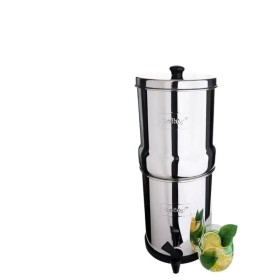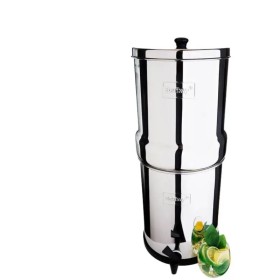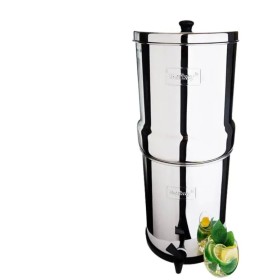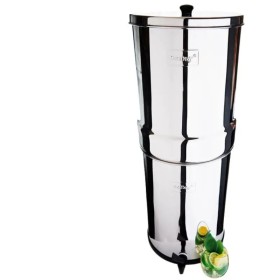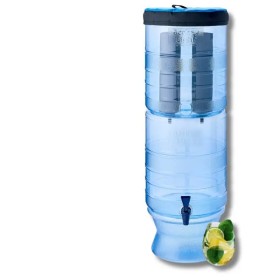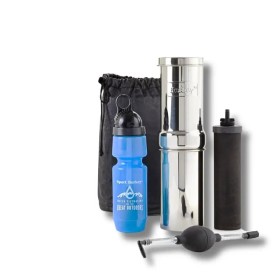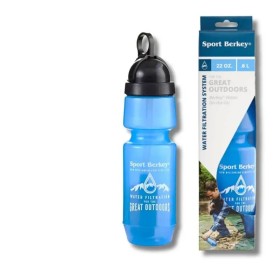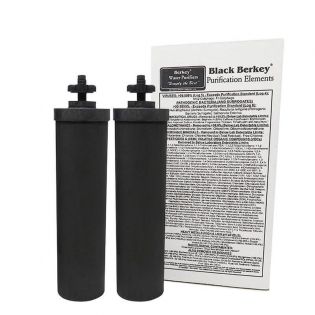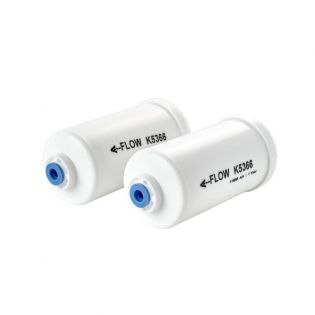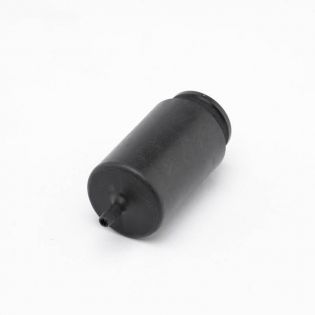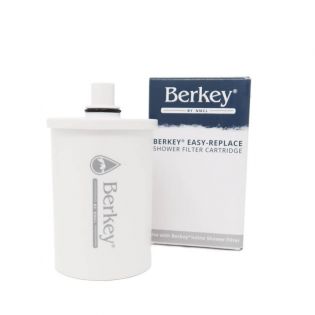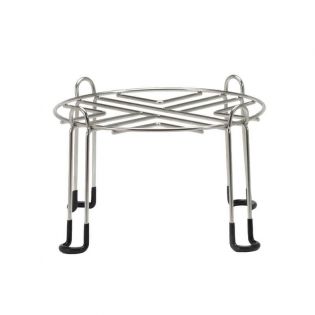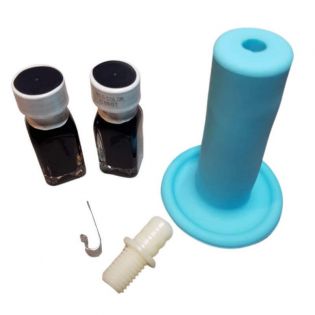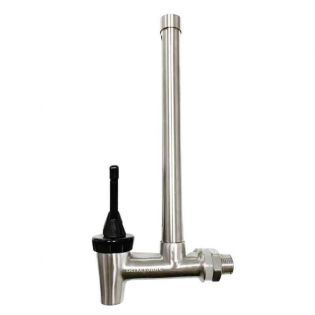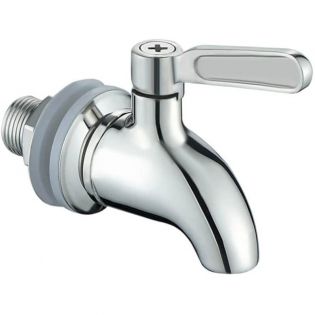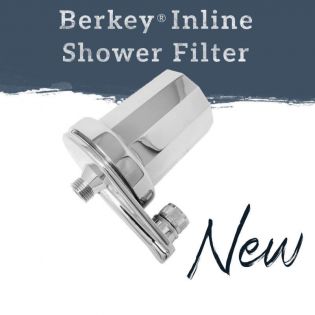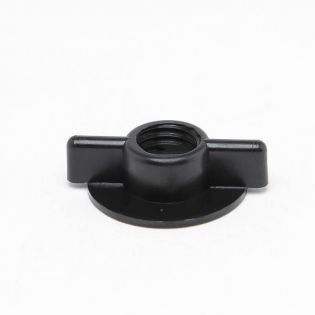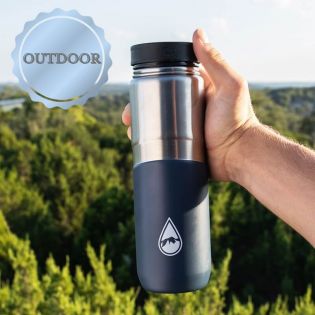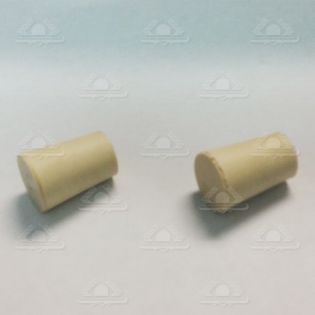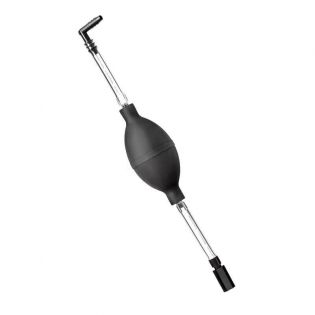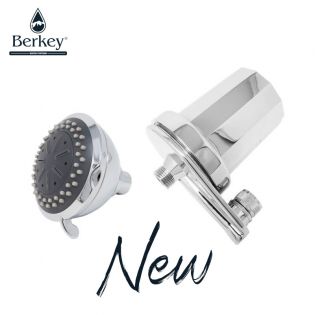Top 10 frequently asked questions
The service life of Berkey® filters has been calculated according to laboratory tests. It is different depending on the type of filter.
- For Black Berkey® black filters, see this link: How long do Black berkey® filters last?
- For PF-2™ filters, see this link: What is the life of PF-2™ filters?
- For shower filters, the filtration capacity is 113 400 liters of water, or approximately 1890 showers.
PF-2™ filters are optional filters, placed underneath the Black Berkey® filters in the lower tank and are specifically used to filter out arsenic, fluorides and heavy metals from the water. Although the Black Berkey® filters themselves perform well on this type of pollution, a high concentration of these pollutants could saturate them before their normal life span. To determine if these filters are necessary for your system, refer to the analysis of the water you are filtering.
More details on these filters can be found in the product sheet.
Black Berkey® filters act in a "mechanical" way by retaining pollutants in the millions of micro channels that compose it and also thanks to other layers, such as the ion exchange membrane or activated carbon. For the purely mechanical part, it is estimated that the filtration fineness is below 24 nanometers (0.024 microns) which corresponds to the size of certain viruses that are effectively filtered such as MS2 or Fr Coliphage.
Even if it is impossible to give the exact composition of the filters, for obvious reasons of industrial secrecy, what can be said is detailed by following this link: What is the composition of Black Berkey® water filters?
Berkey® systems are not just water filters. They are above all water purifiers that are effective against a large number of pollutants, viruses and bacteria, the list of which is published and available through analyses that have been carried out by an independent laboratory following NSF standard protocols. These results are public and can be found here: list of pollutants removed by Berkey® filters.
When you want to filter water whose composition is totally unknown to you, and unless you have no other choice (emergency situation for example), we advise you to make an initial analysis in order to verify that you are not in the presence of a specific pollution that the Berkey® system would not be able to filter correctly. This could be a specific industrial pollution, a resurgence of an old pollution, an important radioactive pollution, etc... The risk is certainly low, but the manufacturer Berkey® itself recommends to filter the safest possible water or to do some tests beforehand. This does not detract from the outstanding performance of Berkey® filters and their real ability to clean water. It is just a precautionary principle.
Whether or not you have decided to do a preliminary water analysis, there are two things to check:
- It is important to make sure that the seal is perfect during the first filtration. The butterfly nuts and blocking plugs must be tightened sufficiently so that the filtered water only comes out of the end of the threaded rods and not around the nuts or plugs. To do this, you must lift the upper tank and visually check that everything is correct.
- It is also recommended to do red dye test after the second filtration.
- None of the elements, except for the inside of the upper tank to be filled and the upper part of the filters, should come into contact with contaminated water.
- Be careful, if you wash your hands with this water, you will contaminate any of the elements by touching them: tap, filters, lower tank.
- Black Berkey® filters, under these conditions, should not be primed with contaminated water. You must prime them with the Black Berkey® Primer pump. This is a mandatory tool in these conditions.
- Discard the first 2 filtrations.
You can also consult this this topic for more information on rainwater filtration.
Water filtered by Berkey® systems can be used for bottle preparation or as drinking water for infants. Pollutants have been removed from the water and minerals have been retained. Take extra precautions if the filtered water comes from untreated water such as rainwater or a natural borehole to ensure that the system is fully operational and that the filtered water does not contain residual pollutants due to extremely heavy pollution or an exceptional pollutant that is not completely removed from the filtered water.
More information on natural spring water filtration here.
Water softeners are used to remove limescale from water. There are several different techniques for this operation. Depending on the technique used, the water may or may not be drinkable. Generally speaking, if the water is guaranteed drinkable by the manufacturer, it can be used by the Berkey® system.
For more information, follow this link: Can I use my Berkey® purification system with water from my softener?
What conductivity can I expect from Berkey® filtered water? What does this mean and how can it be interpreted?
The answers can be found by following this link: How to interpret the measurement of my filtered water by a conductivity meter or a TDS reader?
When using hard water, i.e. with a high mineralization rate (TH > 30), can the Berkey® system be used to reduce it and thus combat limescale?
he answer can be found by following this link: Do the Black Berkey® filters remove limescale?
A lot has been written about the NSF standard, especially about Berkey® systems. What is this standard, what does it refer to and what about Berkey® purification systems? Complete answers by following this link: NSF standard and Berkey® filters.

